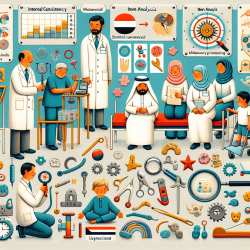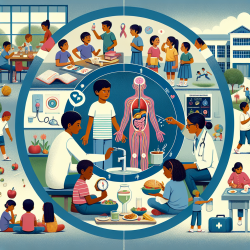Introduction
As practitioners in the field of speech-language pathology, it is crucial to stay informed about various research areas that can impact our practice. One such area is human rights, which, although not directly related to speech-language pathology, influences the broader context in which we work, especially when providing services to children in schools. The research article titled "Thirty Years of Human Rights Study in the Web of Science Database (1990–2020)" provides valuable insights that can enhance our understanding and practice.
Understanding the Research
The study conducted a bibliometric performance and network analysis (BPNA) of human rights research from 1990 to 2020. This comprehensive analysis included 25,542 articles and identified strategic themes and trends in the field of human rights. The research highlights the intersection of human rights with health issues, such as mental health, HIV, and reproductive health, which are crucial for practitioners to consider when working with diverse populations.
Key Findings and Implications
One of the significant findings of the research is the direct relationship between human rights and health issues. For speech-language pathologists, understanding these connections can help in creating more inclusive and supportive environments for children. Here are some key implications:
- Mental Health: The research emphasizes the importance of mental health as a human right. Practitioners should be aware of the mental health challenges faced by children, especially those from marginalized communities, and advocate for their rights to receive appropriate mental health support.
- Reproductive Health: Although not directly related to speech-language pathology, understanding the broader context of reproductive health rights can inform practitioners about the challenges faced by families and communities, impacting children's overall well-being.
- Social Justice: The study highlights the role of social justice in promoting human rights. Practitioners can use this knowledge to advocate for equitable access to speech-language services for all children, regardless of their background.
Encouraging Further Research
The research also identifies emerging themes such as social movements and gender inequality, which are currently underdeveloped. Practitioners are encouraged to explore these areas further to enhance their understanding and contribute to the field. Engaging in research or staying informed about these topics can lead to more effective advocacy and service delivery.
Conclusion
By integrating the insights from human rights research into their practice, speech-language pathologists can make data-driven decisions that promote better outcomes for children. Understanding the broader context of human rights and health issues enables practitioners to advocate for and implement inclusive practices that support all children's rights and well-being.
To read the original research paper, please follow this link: Thirty Years of Human Rights Study in the Web of Science Database (1990–2020).










